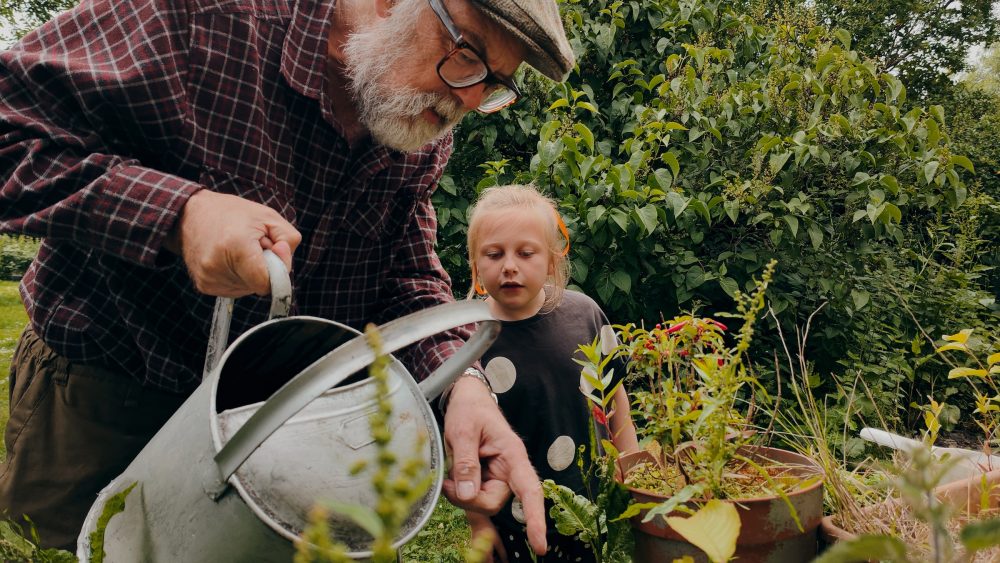In a world facing a climate emergency, a group of extraordinary individuals has emerged. Not the Avengers, but a different kind of heroism — a community of the world’s mightiest citizens, joining forces to combat climate change through brilliant ideas, localised solutions and working together.
Like many others, I am struggling to understand what was achieved at COP28 and what it means for the urgent action needed to tackle the climate crisis. Headlines are mixed, many acknowledging that after 30 years of COP there is finally agreement from global leaders to follow the science and transition away from fossil fuels in a just and equitable way. But nearly all agree the commitments are not enough, contain too much wriggle room and may not be followed through. Many climate scientists are questioning the impact it will have, others are sceptical about the COP process in general.
Despite my rational self trying to see the outcomes as evidence of progress, the underlying feeling is disappointment, frustration, anger. Because the leaders who are empowered to lead, are not leading.
But whenever the despair rises, I remember that huge numbers of individuals and groups are already taking climate action across the planet. While the context, motivators and actions differ, this global community of change-makers is cause for celebration and hope. Feeling part of this global community, and feeling responsible to them is what keeps me fighting – I am also privileged to play a role through my day job.
‘This is not an ‘everything will be ok’ message. This is about what we can learn from communities’
So rather than write a take on what the latest COP means (this is a good listen for a balanced view on that), I’d like to celebrate and raise a festive toast to our climate heroines and heroes close to home – people from all walks of life who are stepping up to make a difference. Some of the best ideas and solutions have come from citizens and communities. Over six in ten (64%) adults in the UK say they have made changes to help tackle climate change – such as recycling, using public transport and having fewer holidays abroad. Many are finding solutions that tackle other community challenges alongside climate change, showing how acting on climate can have many co-benefits, including saving money, supporting health, and tackling loneliness.
Here are some brilliant examples:
Tackling climate and inequality: New Start Highland supports people in northern Scotland who are experiencing poverty and crisis. Its work includes a furniture and household item re-use service, which diverts waste items from landfill, and provides refurbished goods and household starter packs to people and families in need. It also refurbishes bikes and offers programmes which encourage cycling.
Tackling climate and getting active: The Imagine Golden Lane project came out of the lockdown and focuses on tackling climate change and biodiversity loss. Residents met regularly to discuss how to take climate action and came up with 50 suggestions for improvement. Their four key areas of work are: cycling and walking; energy conservation; waste, recycling and the circular economy; biodiversity and greening.
Tackling climate and energy poverty: This social enterprise is based in Blaenau Ffestiniog, Gwynedd, which has the highest fuel poverty in Wales. Working with and providing energy advice to more than 400 families, it’s helped them save over £200,000.
Tackling climate and providing healthy food: Bentley Urban Farm (BUF) is an award winning upcycled market garden and social enterprise which encourages community-led change and collaborative regeneration. It uses reclaimed materials to encourage everyone to grow and share fresh, healthy food for the benefit of all.
This is not an ‘everything will be ok’ message. The problems are huge and complex and community action alone won’t solve them. This is about what we can learn from communities. It’s about breaking down barriers that can make the climate crisis feel huge, distant or overwhelming and focusing on the human elements that engage and sustain us.
It’s about showing that we have solutions, and if we don’t we can find them. Climate action heroes understand that teamwork is crucial. We can work together – people, businesses, and governments – to share knowledge, resources, and strategies.
At CTP, we join forces with communities to understand their concerns and priorities and advocate for community-led action. In 2024 and beyond, our ambitions to grow our support for climate action and community power, using our wellbeing lens for people and places, are:
- Continuing to advocate for an intersectional approach to climate action – reinforcing that the climate crisis is a health crisis, an inequality crisis, a nature crisis, a food crisis and so on – and the solutions are intersectional too
- Building and amplifying the evidence on how communities are tackling climate change and the valuable co-benefits for wellbeing of people and places
- Supporting community organisations and networks to scale their impact and advocate for the urgent support levers from government, local authorities, funders and other place-based actors
- Working with local, regional and national government, decision makers and influencers to ensure the voices and knowledge of communities are valued and integrating into climate-related policy making and action.
However the politicians spin the climate emergency, we know there is hope and in 2024 and beyond we intend to keep reaching for it. With that in mind we wish you a wonderful Christmas and very Happy New Year.
Lisa Groves, Head of Research, Data and Insight, CTP
If you’d like practical support to help shift your organisation, community or region to a Wellbeing Economy approach, CTP is here to help. Get in touch at hello@centreforthrivingplaces.org
Photo by OPPO Find X5 Pro on Unsplash



Comments are closed.